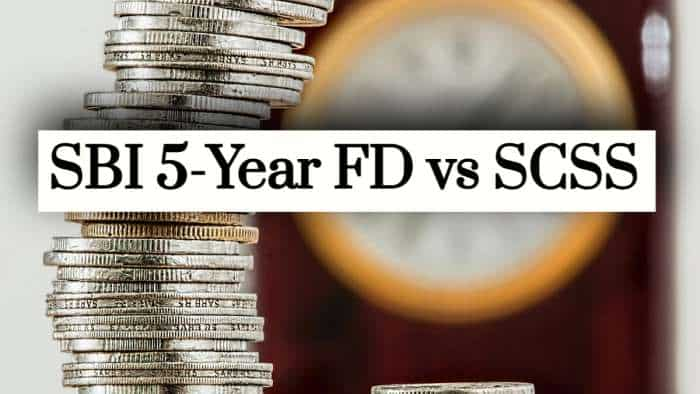Income Tax Return: How freelance professionals can fill ITR and what tax deductions to avail for FY 2023-2024
The Income Tax Return filing process for freelance professionals in India is slightly different from that of salaried individuals.

In India, many professionals have chosen to freelance. Freelance professionals are also required to pay tax and their tax will come under Profits & Gains of Business & Profession. Freelancing is more fruitful now as Income tax for freelancers in India is quite lucrative with many favourable tax rules and savings opportunities.
The Income Tax Return filing process for freelance professionals in India is slightly different from that of salaried individuals.
As a freelancer and consultant, one has to fill out and submit either ITR-3 or ITR-4. ITR-3 applies to income from business or profession. From AY 2017-18 (FY 2016-17), professionals can opt for presumptive taxation and declare 50 per cent of their gross receipts as their income by filing ITR-4.
The following points should be kept in mind while filing the tax return:
Taxpayers with total income during the relevant financial year which is more than the basic exemption limit i.e. INR 2.5 lakhs for FY 2022-23 have an obligation to file tax returns. ‘
The tax rates would remain the same as for the salaried.
Income Tax: Taxpayer should keep the following details handy while filing the tax return.
Personal information such as an address, contact details, bank accounts, Aadhaar, etc.
Details of gross receipts, expenses, other incomes and eligible tax-saving investments made during the year and tax audit report, if any.
Financial particulars such as assets (Indian and overseas), bank balances, cash balance, debtors, creditors, loans and advances, and any other liabilities along with capital balance.
Income Tax: Tax dedication to avail as a freelance professionals
Section 80C - Freelance professionals can claim a maximum tax deduction of Rs 1.5 lakhs against their investment towards tax-saving schemes such as ELSS and ULIP insurance.
Section 80CCD - Individuals can avail of tax deduction against investment towards schemes of the Central Government.
Section 80CCF - It is applicable to avail tax benefits against investment towards government-specified infrastructure bonds.
Section 80DD - Eligible freelance professionals can claim a maximum tax deduction of Rs 1.5 lakhs against treatment expenses of a disabled dependent of an assessee.
Section 80D - Tax deduction is available against paying premiums for health insurance.
Section 80G - Tax deduction is available against charitable contributions.
Section 80E - Individuals can claim a tax deduction on interest paid towards an education loan.
Get Latest Business News, Stock Market Updates and Videos; Check your tax outgo through Income Tax Calculator and save money through our Personal Finance coverage. Check Business Breaking News Live on Zee Business Twitter and Facebook. Subscribe on YouTube.
10:01 PM IST













 Income Tax Day 2024: Nirmala Sitharaman to preside over celebrations in New Delhi on Wednesday
Income Tax Day 2024: Nirmala Sitharaman to preside over celebrations in New Delhi on Wednesday Income Tax: Why did some taxpayers receive notice for discrepancy in house rent receipt? IT Dept explains
Income Tax: Why did some taxpayers receive notice for discrepancy in house rent receipt? IT Dept explains Delhi court sentences woman to 6 months jail for not filing ITR on income of Rs 2 Crores
Delhi court sentences woman to 6 months jail for not filing ITR on income of Rs 2 Crores ITR Filing Last Date is December 31 - Check how to file ITR
ITR Filing Last Date is December 31 - Check how to file ITR What is ITR-7? Find out who uses it as government extends deadline for AY 2023-24
What is ITR-7? Find out who uses it as government extends deadline for AY 2023-24